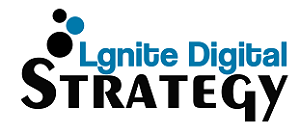When it comes to the mortgage industry, things move quickly. You need a mortgage CRM that can keep up with your business. The question is: how do you choose the right one? Here’s what to look for in a mortgage CRM so that you can get the most out of your investment and ensure your team is operating at peak efficiency.
Contact management
Contact management is one of the most important features you should look for when choosing a mortgage CRM. The contact management feature allows you to manage your contacts and leads, including their personal information (name, phone number, and email address), as well as any notes about them that may be relevant, such as what their current needs are.
When choosing a mortgage CRM, make sure that it provides good contact management features. Your software should give you room for storing notes related specifically to each contact in an organized manner so that they’re easy for yourself or others working on your team at home or work. This can help reduce confusion later during conversations between agents since they won’t have to waste time looking through old emails from previous conversations before every discussion starts up again.
Pipeline management
If you’re looking for a way to keep your pipeline in check, a good mortgage CRM should allow for lead management. This means that it should be able to track, manage and nurture leads from their initial contact with you through their final closing. If they don’t have this capability, they may not be able to help you achieve your goals as an agent.
Lead Management: The ability to track and manage leads is essential because it lets agents know where they currently stand with each client or prospect who has expressed interest in working with them. In addition, having this data at your fingertips allows agents to more easily determine which clients are most likely to close on loans quickly so that they can prioritize them over ones who aren’t as likely (or haven’t been as responsive).
Existing Clients: It’s also important that these tools allow users to track existing clients so that they can ensure all of their needs are being met throughout their relationship with you—and beyond your relationship’s end date. This can include things like providing annual reviews or recommending other services such as tax preparation or estate planning services when appropriate (and if there are any special circumstances involved).
Marketing automation
One of the most important features to look for in a CRM is the ability to integrate with and automate marketing tools. The best CRMs will allow you to seamlessly connect your email and social media platforms, plus create automated workflows that streamline communication between all parts of your business.
Loan processing
Loan processing is the process of taking an application and getting it ready for underwriting. This involves a lot of communication between your team, lenders/lenders’ reps, and clients. With mortgage CRM software, you can track all this information in one place so you never miss anything important or lose track of who needs to do what next.
Pricing and integrations
A CRM is only as good as its cost, so it’s important to know how much you’ll be paying for the solution before you make a decision. The best way to do this is by looking at what other people are paying. You need to be able to integrate your CRM with all of your other business systems and software solutions, including accounting software and email marketing platforms like MailChimp or Constant Contact—or better yet, HubSpot since you already mentioned it.
Any high-quality CRM solution should include some type of customer support in case something goes wrong or you have questions about how to use the system effectively within your company culture. You should also look for a CRM solution that can be customized to fit your business needs. If you want to track specific metrics that are unique to your industry, such as the mortgage lending industry, then the software must support additional features or integrations.









